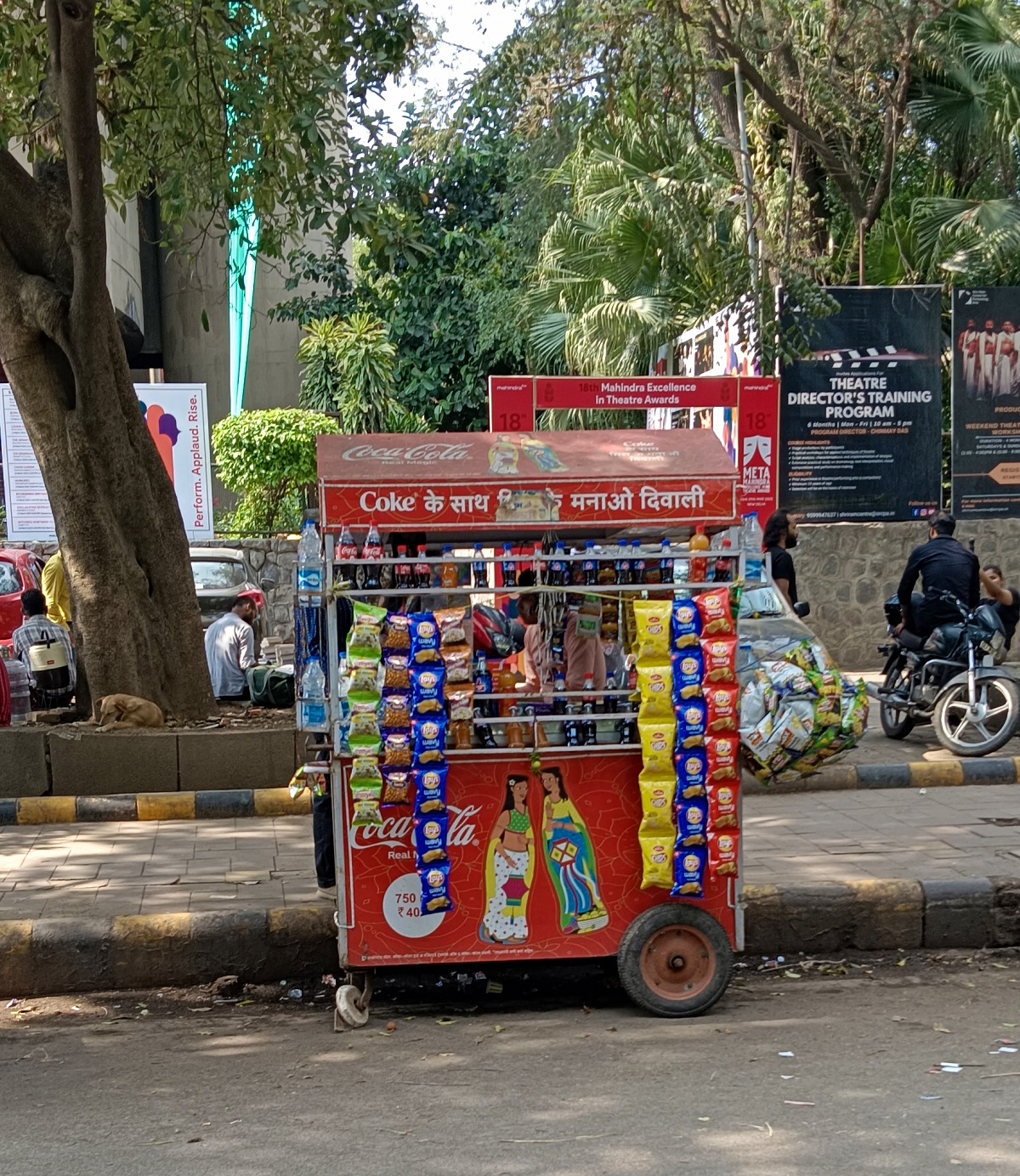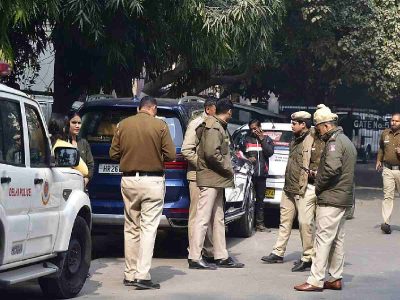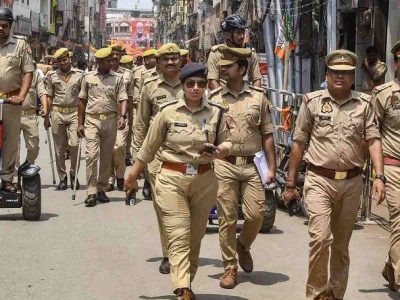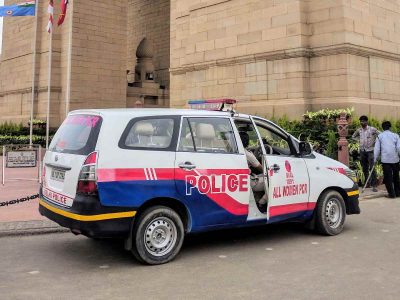A safety audit identified five major issues in the Mandi House area, including inferior footpath width, an apparent lack of footpath, obstructions on footpaths, encroachments in the form of parking and vendors, and poor surface quality.
The DDA’s proposed plan aims to regulate traffic movements in and around popular institutions such as Lady Irwin College, the National School of Drama, Bengali Market, and Khan Market.
On the other hand, the streets of Mandi House are home to many local small vendors, including chai ki tapri, small eateries, ice cream carts, and people selling basic necessities such as handkerchiefs, socks, and other small items.
These small business owners will be the first to suffer when the encroachment drive hits the streets.
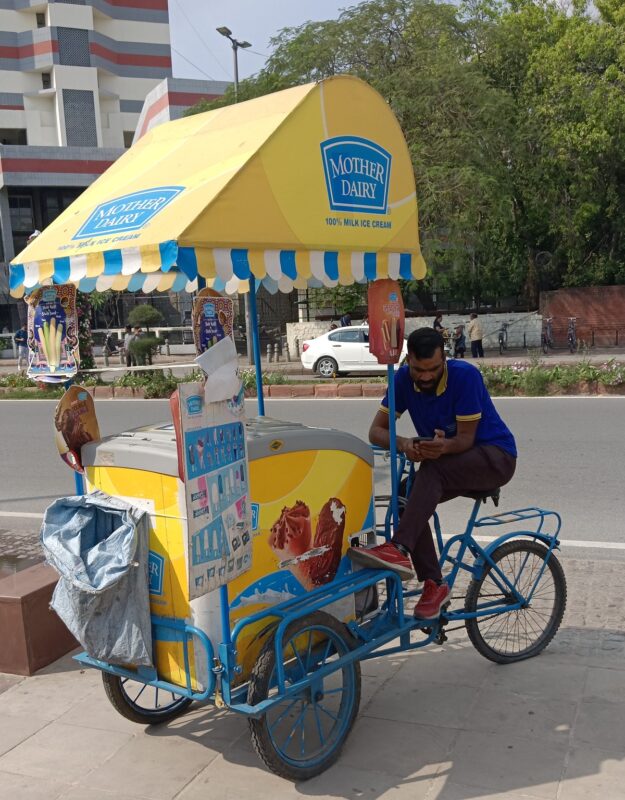
Patriot set out on a journey to find out how these small business owners will survive without their income, and the results have been quite surprising.
According to Amit, 42, a street vendor who has been selling bhelpuri near Mandi House for the past two years, “We haven’t heard anything like this before. We’ll look into it as soon as we receive an official notice.”
Amit goes on to say that they already face a lot of problems on a daily basis, that the struggles they have to go through to make a living for ourselves are exhausting, and that if another problem arises, it will be like a daily occurrence.
Amit speaks about his everyday problems near the Mandi House metro station. “I’ve been selling bhelpuri here for four years and have always had issues with the municipality because they frequently take away our stalls.”
“Even after giving money to the police authorities on a weekly basis, I’ve been a regular victim of this behaviour. Most of the time, the authorities seal my stall, and I have to go to their office and pay them a certain amount of money to reclaim it, which wastes both time and money.”
Amit recalled an incident when the authorities took over his stall a week ago, despite the fact that they had been taking money from him.
“I don’t think it will be a problem for me if I have to leave this place because I have a licence with me, nor have I faced any such instances, and I put my cart inside the street area, near the Shree Ram Centre for Arts and Culture,” says Pankaj Kumar, 46, who owns a Coca-Cola cart.
“But I’ve seen people from the municipality come and take away vendor stalls on numerous occasions.
“I don’t think these things should happen because none of us can make ends meet, and we’re not doing anything illegal either; we’re just running basic small businesses to survive,” Kumar adds.
“Development must occur, but people like us must also be considered. We are not harming anyone; we lack education and a platform, so we are making do with what we have; however, if that is also taken away from us, what will we do?
“Do you know how many people come here a day for work, the theatre, and various other reasons? They need certain things, and small shopkeepers provide them.”
“However, we are adding value to the area,” and Kumar, in a sad tone. “Ab aap development ke naam pe hame hi nikaal denge to ye to theek nahi hai na? (If you remove us in the name of development, it is not right).”
Another street vendor who sells ice cream, Manish Kumar, says, “I’ve been putting my ice cream stall in Mandi House since the past month and there have been approximately six instances where the NDMC people took away my stall, but it’s their process to come and create havoc. We can’t even work properly as we’re constantly worried about municipal corporations.”
“The poor have nowhere to go. We give money to the police for protection and the municipal corporation still takes away our shops, so we’re losing out on both money and work.”
On the bright side, Kumar claims that the NDMC plans to issue licences to all street vendors by 2025.
For the ongoing G-20 Summit in Delhi, a number of shops have been reconstructed throughout the Central Delhi area, and the Mandi House revamp plan could be part of the same strategy.
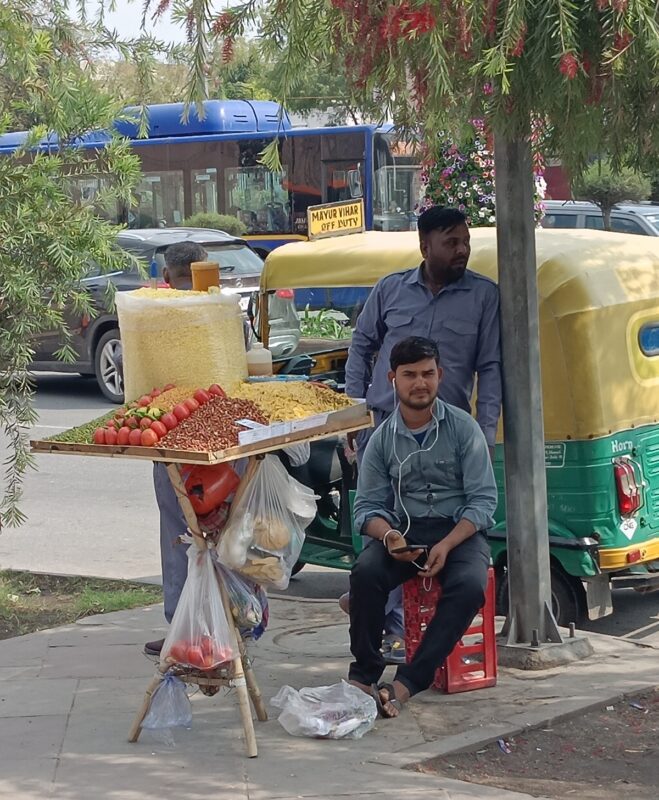
Ramesh Singh, 46, also sells ice cream. His stall was removed by the NDMC recently near Bengali Market. He says he has to face a lot of financial loss on a regular basis.
“Whenever the municipality people take my ice cream stall, I have to face a financial loss of about 500–1000 rupees, and the best I earn in a day is around 1000–1500 rupees, so you tell me if I’m giving away more than half of my income and losing my livelihood too. Then how am I supposed to take care of my family? What should I tell my wife when I get back to her? They take away the carts and ice cream boxes,” Singh laments.
“The only positive for us is that we don’t have to look much into it as the company provides us with a new stall, and they recover the old ones by themselves. But we do face a problem since we aren’t able to earn that much money, and so revamp or not, it’s always a chaotic scenario for us.”
Patriot tried to reach out to the municipal corporation for details regarding the development plans and the allegations but calls were not answered.

